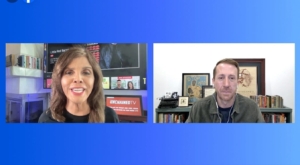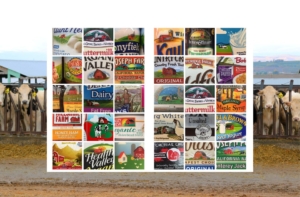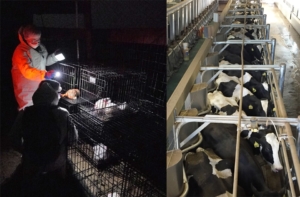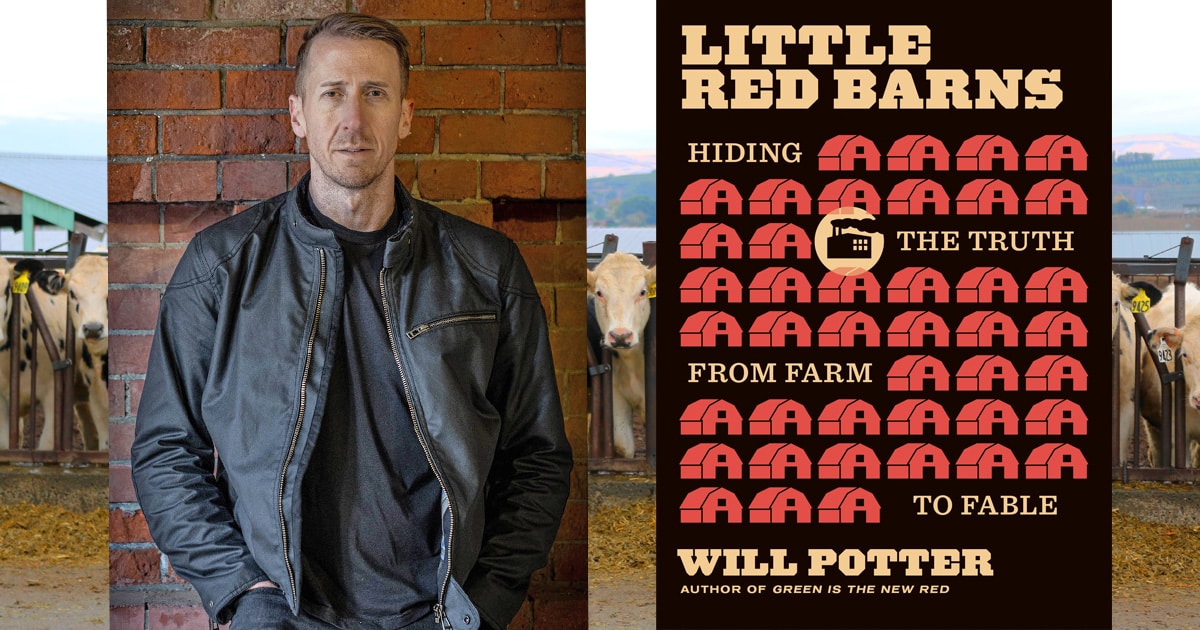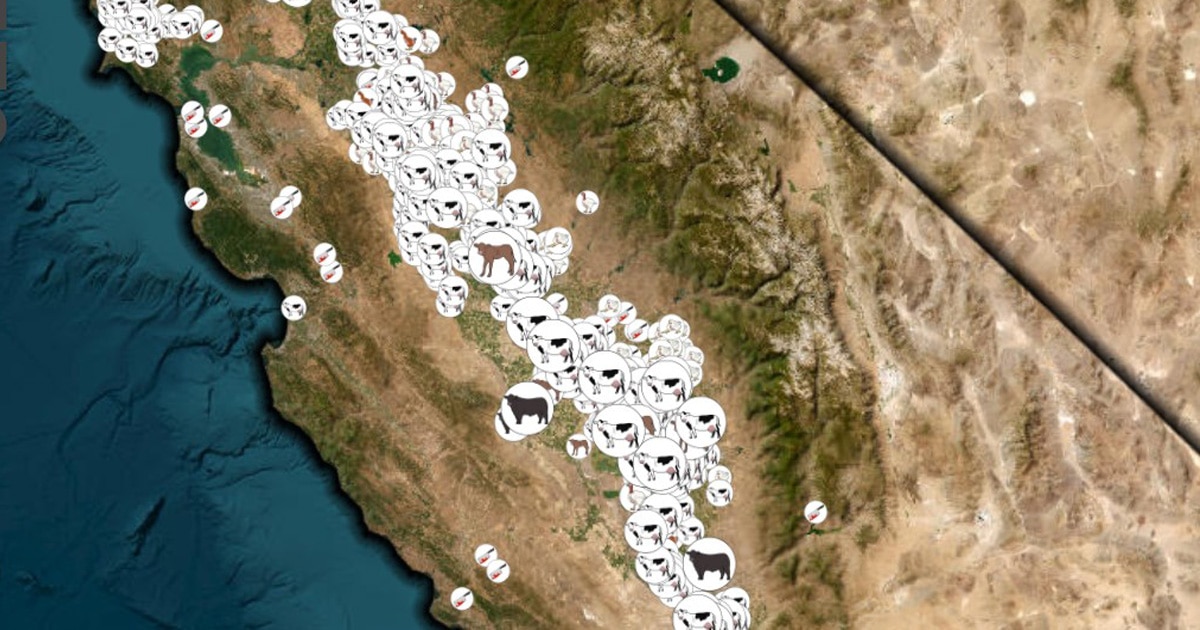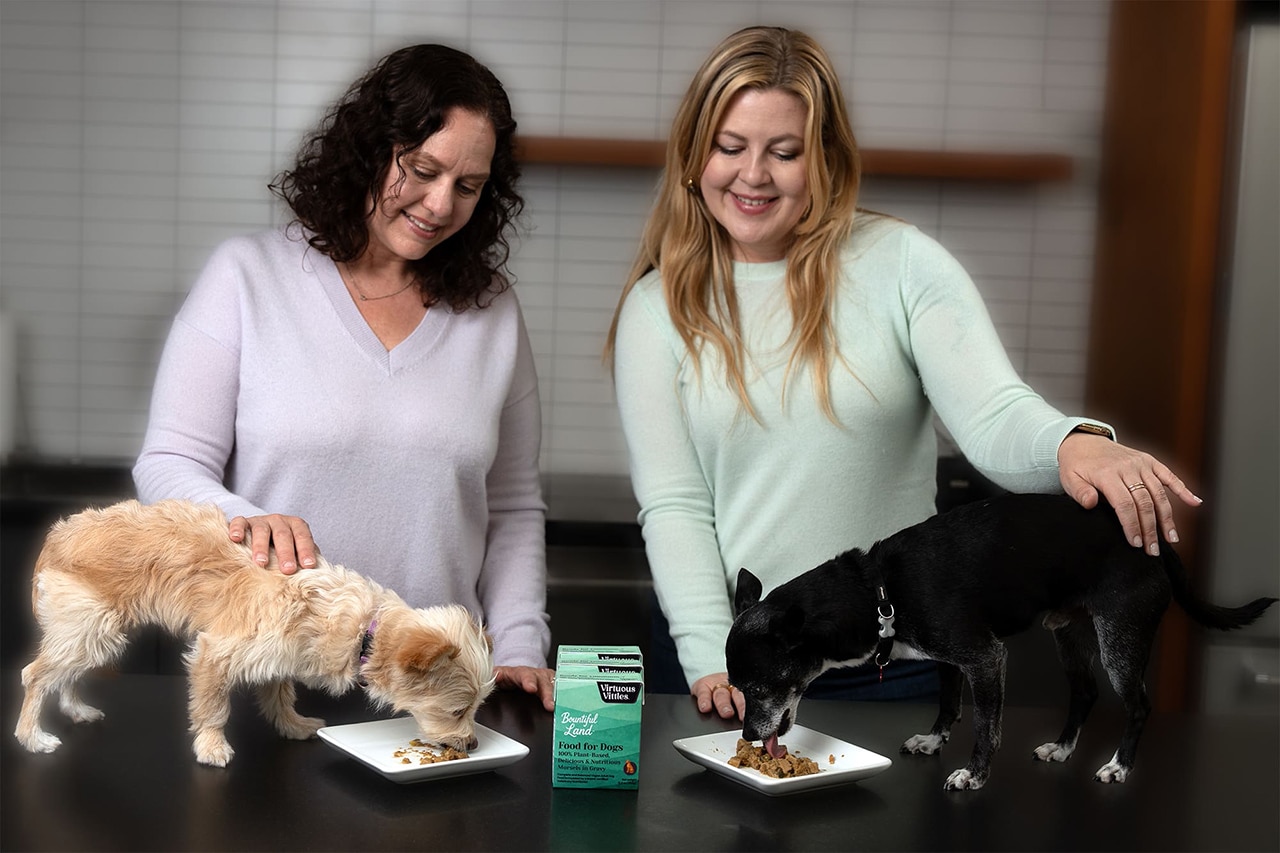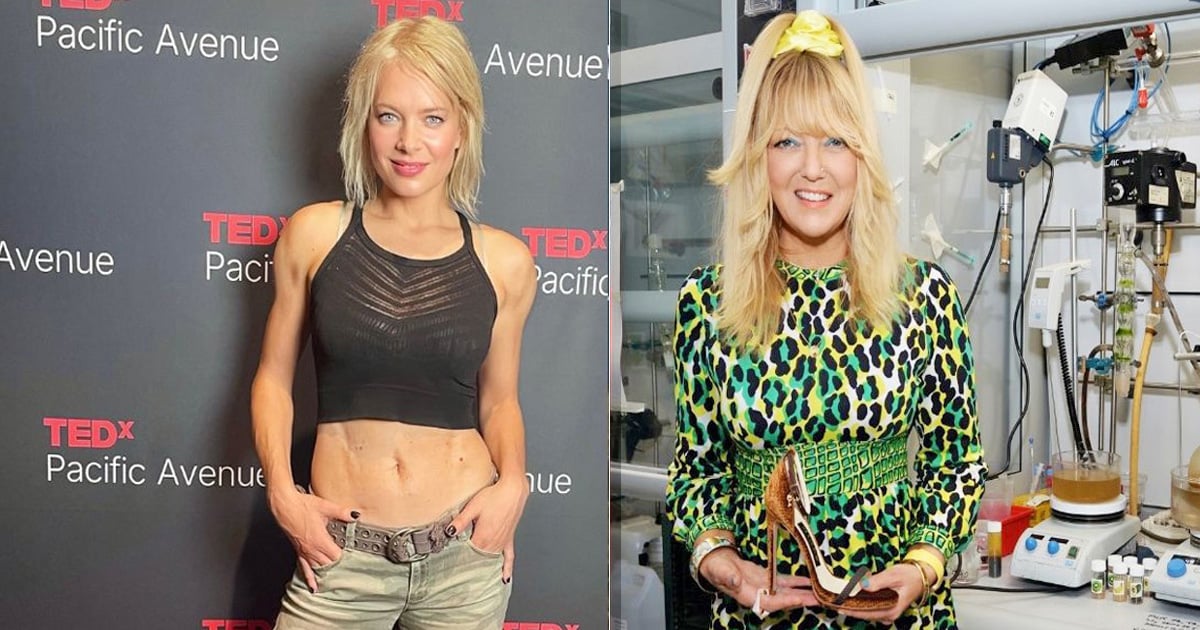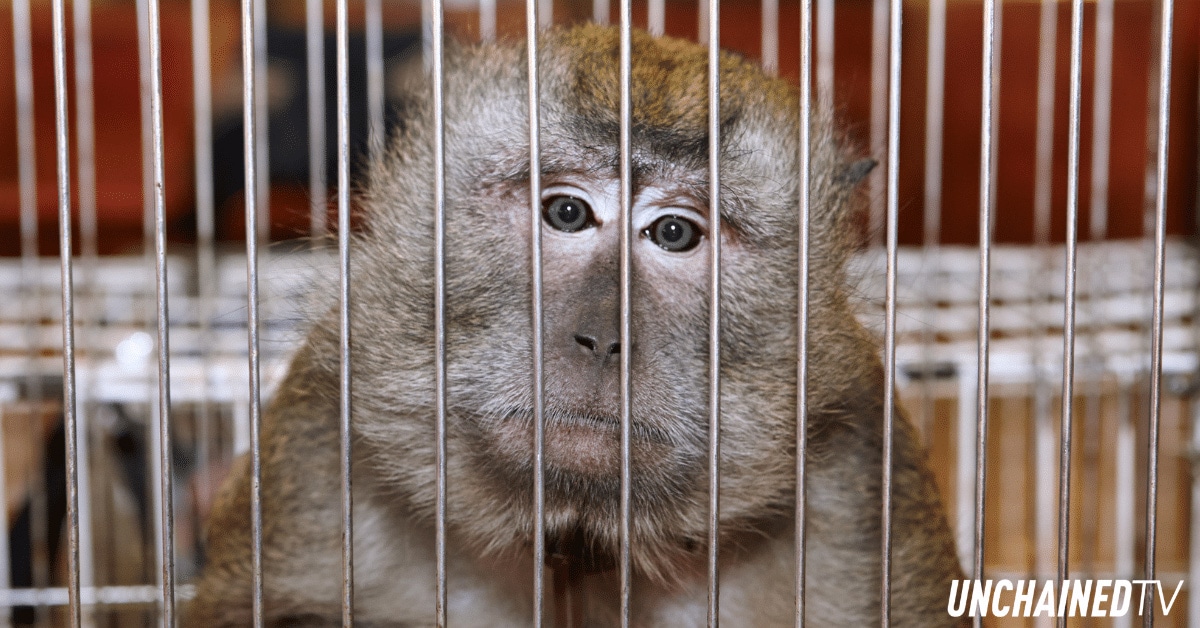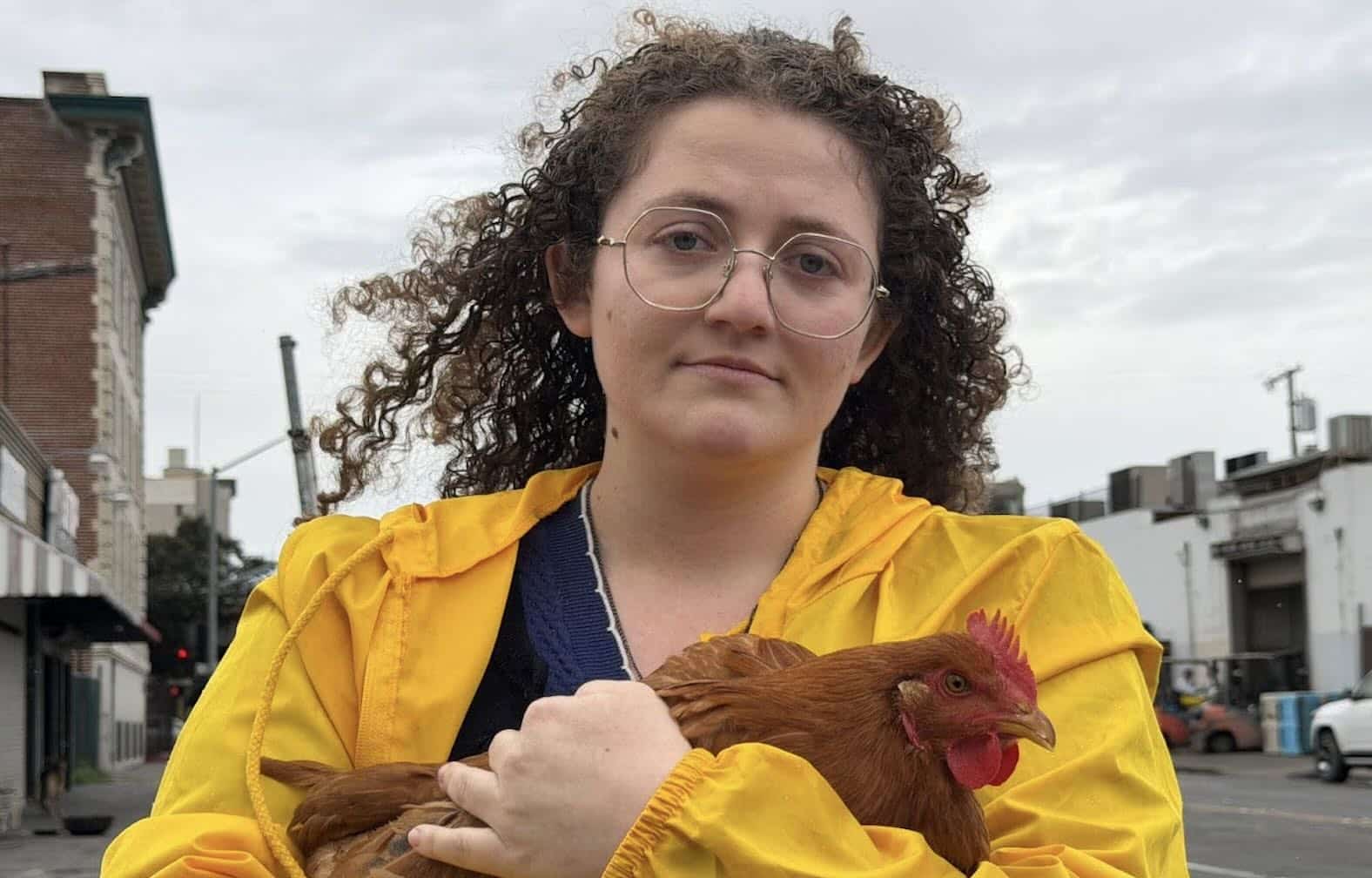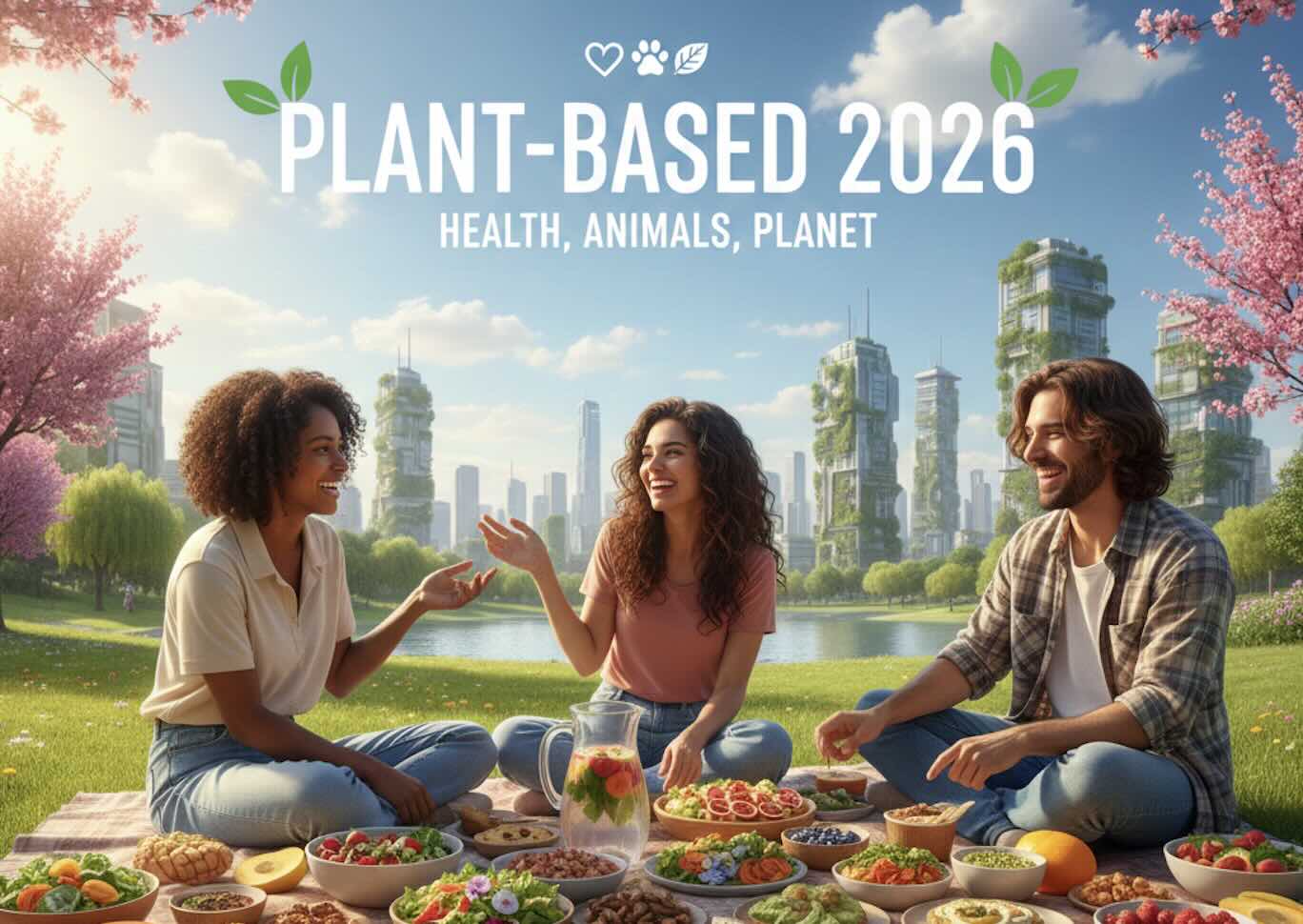[Speaker 1]
Live from the Unchained TV headquarters in Los Angeles, California, this is Truth Files with Jane Velez Mitchell. Get in touch during the show on socials.
[Speaker 2]
And make sure you don’t miss any of Unchained TV’s award-winning programs by downloading the app for your phone, tablet, or smart TV. And now with the headlines, it’s Jane Velez Mitchell.
[Speaker 1]
Welcome, Jane Velez Mitchell here. We are live on our streaming network and across all social media, so please join us, comment, share. Let’s do this together.
I am so delighted to have the author of this extraordinary blockbuster new book on. His name is Will Potter. He spent 10 years writing this.
It’s called Little Red Barns. Thank you so much for joining us. Will, what does that title mean?
What is this book about? Why did you write it? Thank you so much for having me on, Jane.
The Little Red Barns are the images we all grew up with. I don’t know about you, but I had the little play set from Fisher Price when I was a kid, and even if we didn’t, we had the picture books and the toys, and we learned Old MacDonald and how to point to the Little Red Barn and the happy animals before we even knew the ABCs or the Pledge of Allegiance or any of the other stories about God or culture or religion or the country. It’s really the first story that we learn, and the book is about how that story is used to hide the reality of what animal agriculture has become in terms of factory farming and the consequences of that for people and animals and the planet.
Well, it’s absolutely extraordinary, and what’s so great about it is that you are really bursting through to mainstream media because we cover so many undercover investigations that get no media coverage, and as opposed to that, you have been in The Washington Post, which gave you a rave review. This book is a lucid indictment of a food system whose normalization of cruelty on a staggering scale is rivaled only by the tightly controlled government-sanctioned regime of non-transparency that enables it. Beautifully said, but you know what my question is?
Where has The Washington Post been during the 10 years that you’ve been doing research and the situation with factory farming has just gotten bigger and worse and more destructive, more cruel, more environmentally devastating? I mean, why are you able to break through when so many other undercover investigators get ignored? Lena, some of these questions were really at the heart of the book itself and why it took so long, and the questions about what it means to see and bear witness and expose these issues that really motivated the whole project.
And so I’ve been thinking a lot about that and why sometimes these investigations did break through for a number of years, and then it kind of fell off, and I’ve talked to investigators and organizations now that are having a really difficult time getting footage of standard industry practices and egregious abuses that are exposed into the headlines. And my approach in this book has been to kind of confront that question head on. I’ve structured Little Red Barns as really a personal narrative.
It’s also a suspenseful one, and so I’ve tried to use those techniques of storytelling to pull people into what’s just an engaging read, an investigation, and an eye-opening expose, rather than trying to specifically go and get them with this footage or this message. I’m trying to get people in and let them sit with this issue, examine it, and reflect deeply about the story behind it. I want to say that you are number one on Amazon’s hot new releases in the agriculture industry sector.
I am urging everybody, get this book. I ordered it in person, physical copy, as well as on Kindle, and I’m praying that there’s going to be an Audible soon because I would love to get it on Audible. But really what’s extraordinary here, you’ve got an excerpt published in Rolling Stone magazine, How Factory Farms Criminalized Journalism to Block Viral Videos of Animal Cruelty.
An excerpt from Little Red Barns, Hiding the Truth, From Farm to Fable, reveals how the animal agriculture industry created a new model of repression. What do you mean by that? Well, these ag-gag laws, ag is for agriculture and gag is to silence, were being introduced by the industry in response to this egregious footage that investigators exposed.
And rather than the factory farming industry change their practices or listen to consumer demand or make any effort to eliminate the worst of the worst abuses, they’ve been fighting it tooth and nail and trying to shut down the messengers and actually make it illegal for even investigators and journalists to take photos of these farms. And so that’s an important, that’s really what started this book for me. Most of my career has been spent looking at government and corporate repression and silencing of protest movements.
And what I saw evolve was this move, this terrorism rhetoric moved away from people that are labeled as radicals to the most mainstream organizations and nonprofits. And that’s the message I really took to Rolling Stone and the Washington Post and others, is that regardless of how you feel, if you’re a vegetarian or a vegan, whether you identify as an environmentalist, this is an attack on journalism and it’s an attack on all of our basic right to know where our food comes from and what decisions we’re making at the grocery store. Well, those were some of the images that you provided.
I have to say that even protests inside agricultural hearings get zero media coverage. So the reason I’m saying this is that, yes, government is a problem. Yes, industry is a problem, but the media is also a problem.
They too have been co-opted by industry. Look at the advertising, meat, dairy and pharmaceuticals, fast food and pharmaceuticals, very industries that would suffer if people read your book, if people took action to reduce their meat consumption or eliminate it. I mean, take a look at here’s something I think should have gotten coverage, didn’t get any coverage.
The Farm Bill is a product of dark money that comes from the meat, dairy and egg industries who have bought your vote through millions of dollars in campaign contributions. You have betrayed hard-working Americans, but we refuse to pay for disease outbreaks that come from confining and slaughtering billions of animals, not another penny for cooking millions of birds alive. It’s time to fund a slaughter-free, plant-based food system.
No, you didn’t. So there, I have dozens of videos like that. We interview numerous organizations that, of course they ask politely.
Of course they first try to have meetings. And when all of those are rejected, ignored, dismissed, then they do protests. But even those protests don’t get coverage from mainstream media.
So, I think it’s wonderful that the media is now looking at what you have to say and covering your extraordinary book. And I urge again, everybody get this book, Little Red Barns, get it now. But why is it that it has to be delivered in a certain way?
A 10 year investigation, right? You did 10 years of your life while the situation was getting worse and worse before they even acknowledged that there’s a problem. I think there’s a, I’ve wrestled with this quite a bit in Little Red Barns, and there’s a couple explanations.
You mentioned money and the influence of industry, and any time we’re talking about politics and policy, we have to talk about money. What I looked at in the book is that the agriculture and animal agriculture industry is contributing to politicians and influencing international climate policy and legislation in ways that are directly mirroring big oil. They’re using their deep pocket books and heavy influence to skew the discussion, to silence critical information, and to keep potential solutions like plant-based diets out of the dialogue.
So that’s part of it, is the money and power of these industries. And I think that comes as no surprise to anybody watching this program. The other part of it that I wrestled with though, is I think the nature of the issues themselves.
I think when we start talking about animals and animal agriculture, something happens. And I think there’s a couple things that happen, but what is taking place is that people view these issues as separate and distinct and removed from the kind of contemporary social justice, civil rights issues that we think about affecting all of us. They’re seen as different and extreme.
I think part of it is that the people or the individuals being advocated for are not humans. Animal activists are putting animals at the center of this discussion, not human beings. And I think that’s challenging as well.
So I think the real key here to people listening to this is when we’re talking about these issues, we kind of have to attack it from every angle. Bring up the animal cruelty, the environmental impact, health, worker safety, child labor and slavery, press freedom. There’s so much that’s implicated here.
And I think when we start talking in that way, it helps kind of break out of those silos, to use the farm analogy, that we get stuck in of thinking, oh, no, no, no, we don’t care about animals or animal rights. We have more important things to deal with. It’s something that every animal activist has heard before.
Well, these are massive operations and you talk about the environmental impact. We’re in a climate crisis. And while everybody goes on and on about fossil fuels, well, if that were the solution, then we’d start we would start to see some results because everybody’s talking about fossil fuels, the COP conferences, but they ignore animal agriculture.
So you’ve done a deep dive into the environmental devastation caused by animal agriculture that is largely ignored by governments, by the COP conferences fostered by the United Nations, by the media. Nobody’s nobody’s talking about it. What is the environmental impact of animal agriculture and what are we looking at?
You know, animal agriculture is not only one of the top contributors to climate change, but there’s a host of other environmental impacts that are even lesser known, I think right now. The concentration of these industrial operations has radical environmental implications. Everything about how these facilities are structured leads to things like algae brooms.
You’re seeing photos right now of the waste lagoons. There’s so much waste generated from these factory farms. There’s nowhere for it to go.
You know, these animals aren’t on grass like what they are in the picturesque little red barns of our imagination. They’re on concrete floors most of the time and dairy farms. So that waste has to go somewhere and it goes into these massive open air pits.
And what most people don’t know is that this is dangerous not only for the surrounding environment, wildlife, animal extinction of surrounding species, but it also has radical consequences for lung problems, immune problems. These are antibiotics and waste in these lagoons that are being spread into the air and into the communities. And all of this is really out of sight and out of mind.
And my intention in Little Red Barns is to pull back the curtain on this and let us have an honest discussion about one of the top contributors to a host of environmental consequences right now. Well, these lagoons are so vile, so disgusting, and people love to pretend that they don’t exist, but they do exist. We’ve also got some breaking news to tell you about.
This is a really bizarre timing. So recently we celebrated a victory. The U.S. Supreme Court declined to review California’s landmark Prop 12 animal cruelty law. There you see it. Iowa Pork Producers Association petitioning, the Supreme Court petitioning, denied, petition denied, which means that California’s law, and California is the fourth largest economy in the world, that bans these hideously cruel crates where pigs who are smarter than dogs cannot even turn around to scratch themselves. OK, that is illegal to sell products from these cruel confinement methods.
Nevertheless, and here’s the breaking news today, today, the House Agriculture Committee held a hearing to try to do an end run around the Supreme Court and reinstate these and make these legal again. And here’s the one person that I heard speaking in favor of Proposition 12, who acknowledged that it was a completely unfair hearing that was basically just an attempt to get around Prop 12 and reinstate these pig gestation crates.
[Speaker 2]
Now, we have gone around in circles over Prop 12 and other states’ anti-animal cruelty laws for years. And the largest pork producers are not happy that 66 percent of all Americans oppose confinement crates. That’s from a Harris poll, by the way.
Now, a lot of good has come from these state laws, and Republicans still want everyone to believe that state laws to make sure pigs have enough room to turn around, as most Americans want, are some sort of Marxist plot against the heartland. And this leads me to the greatest misrepresentation of all today. There are thousands of farmers who vocally support Proposition 12, but Republicans have not given them an opportunity to speak today.
With all due respect to this panel, this is not a balanced panel. One would think there’s not another side to this argument. But some of these farmers who support Proposition 12 are here.
I’ve met them. They’re in the audience and they deserve a voice in this conversation because their livelihoods are at stake. And I ask unanimous consent to insert over 150 letters, Mr. Chairman, that I received from many of these farmers who support Proposition 12. Let me make this as clear as possible. If you kill Prop 12, you are you are putting independent family farms at risk. They will not be able to shoulder the cost of going backwards the way the factory farms can.
It will be get big or get out all over again.
[Speaker 1]
You talk about this in your book, the consolidation of animal agriculture and how basically there’s just a handful of corporations that have taken over. And that’s why I want to pull my hair out when I hear people go, but the farmers, the farmers, when the institutions we are bailing out to the tune of billions of dollars are massive multinational corporations. Can you address that?
Absolutely. And I think this is one of the most glaring instances of corruption, outright corruption I talk about in the book. I, you know, I opened the book talking about Upton Sinclair.
A lot of folks have read The Jungle in high school or required reading. It was the investigation at the turn of the last century that led to some of the major food safety laws in this country. Right.
But it also exposed the corruption and consolidation of industry. And to break it down for your viewers right now, what this is actually what this actually means that the industry is doing. Investigations exposed horrific animal cruelty and standard industry practices.
The states and voters responded with these ballot initiatives where people showed up overwhelmingly to say we want to restrict not the whole industry, but the worst of the worst abuses. The industry responded, despite all their rhetoric about states rights and aligning with the Republican Party and stuff, trying to overrule the will of the people. And when that didn’t work, they went to the Supreme Court.
And when that didn’t work, they’re now going to Congress to get them to bail out the industry again. And all the while, the industry factory farming industry is telling the public that, oh, no, no, no. You’ve got to watch out for these animal rights extremists, these investigators.
Like the gentleman said, we’re under attack from these radicals. What is really happening and farming, as I document extensively in the history in Little Red Barns, is the industry is attacking the farmers. The industry is consolidating and pushing out the small operations and those that are trying to do good and abide by these types of changes in the industry.
And it’s just their sheer brute force trying to overrule the will of the people and the will of small farmers. This is, I think, the most important topic that anybody could be discussing right now. And you’re absolutely right that there is a demonization of animal rights activists.
I mean, I want to just play this. There was an open rescue in Northern California where some members of Direct Action Everywhere, which is pretty much a youth oriented group against factory farming, gathered and they went in and rescued a symbolic handful of animals. And there they are playing guitar, holding roses.
And look at the police response. Look at the police response. They are treating this like an act of terrorism.
And it’s just absolutely extraordinary that with all the problems we have going in our world today, that this is how law enforcement chooses to focus its resources. And, you know, sometimes after eleven thirty at night, I feel scared walking my dogs. OK, where’s the where’s law enforcement?
They’re doing the basic job of keeping people safe and doing what police officers are supposed to do. Law enforcement is supposed to do. And this, to me, epitomizes exactly what we’re doing, what you’re talking about.
It’s law enforcement and agencies of government and Congress being leveraged for giant corporations, not for the will of the people. Overwhelmingly, California passed Proposition 12. Overwhelmingly, people are against these cruel gestation crates.
And I have to quote from your book. In your book, you quote an executive of the Pork Council. I’m going to get to that right here.
National Pork Council’s executive saying, so our animals can’t turn around for the two and a half years that they are in stalls producing piglets. I don’t know who asked the sow if she wants wanted to turn around to me. I have to say, when I looked at that, it makes me embarrassed to be a member of the human race like these are clearly instruments of torture.
Every every living being wants to turn around. Imagine if you put your dog in a crate, unable to turn around and scratch herself or himself for two and a half years. So this comment, to me, epitomizes the attitude.
It’s not just indifference. It is outright active cruelty. What are your thoughts on that, Will?
I completely agree. And I think it also reflects the disdain for empathy, for justice, for oversight and accountability and the response of the industry because statements like that don’t go over well with the general public. People respond exactly like you just did, Jane, that it’s shock and it’s appalling and revolting.
And so that’s why the to lobby Congress, Homeland Security, the FBI, state agencies to treat nonviolent activists as terrorists and to criminalize people who are exposing what this industry does every day. Now, I think as folks are seeing what’s happening right now with the rise of outright authoritarianism around the world, the police state, the disproportionate police response to nonviolent protest, violence, snatching people off the street, private detention centers for immigrants. We have to go back a little bit.
And I think that image you put up reflects it really well, that the agriculture industry has been pioneering this relationship between counterterrorism and the private corporation for decades to push their agenda and to silence their opposition. And so anyone caring about social justice and human rights and the right to protest right now needs to be paying attention to how the agriculture industry did this. Because as I documented in my first book, Green is the New Red, I really charted the history of how animal activists became labeled as the number one domestic terrorism threat by the FBI.
And in Little Red Barns, I take that further and I try to answer the question of how in the world we arrived at a point where you have those lines of riot cops facing off against nonviolent activists to protect private corporations who are doing illegal things. That’s the heart of this to me right now. And we have covered so many instances of animal activists being arrested.
The woman on the right of your screen is going to trial in September and she has had to wear an ankle monitor for more than a year. And she could literally do years in prison for taking a couple of chickens that were sick, that were documented to be very sick out of a factory farm. So it’s it’s really quite shocking.
Of course, we know about another activist by the name of Wayne Shung, who has also been arrested numerous times. And he has defended himself because he’s a lawyer and a former law professor. He’s defended himself in court.
And it’s it’s basically something called the right to rescue, because all of these activists say they don’t just go in, that they’ve been trying for years to let law enforcement know about violations of animal cruelty laws and that there are laws like Prop 12 that protect animals from extreme cruelty, but they’re being ignored and that no matter how many times they report these violations, nothing is done. So it’s not that they say that they’re lawbreakers per se.
They say just as you would break a car window if you saw a dog or a baby in a hot car dying. So we have the right, the necessity defense to go in and rescue these animals because law enforcement refuses to do its job. And yet that is ignored and they’re put on trial.
And Unchained TV is going to be covering the trial of Zoe Rosenberg coming up in September. Your thoughts on that and and how you how you express that whole issue in your book? You know, I’ve been writing about social movements, protest movements my entire life at this point.
And one thing that I just hear consistently, it’s in the history books, in the press, in public conversations, is that there’s this kind of right way to go about social change. You nonviolent protest, civil disobedience, using the press, bearing witness and documenting and exposing abuses. And what this industry is really reflecting to me and what I grappled with in the book is they’re showing that even when you do things, all of those right ways, when you follow the teachings of Dr. King, when you abide by nonviolence and civil disobedience and allowing yourself to be arrested, exposing your face when they’re doing an open rescue, turning over the footage to law enforcement, it’s still not enough. The industry will still refuse to change.
And in fact, we’ll try to label those people who are fighting the good fight the right way as terrorists. And I don’t know, you know, I do know how we arrived at this point. I’ve documented it, but at the same time, I struggle with it.
I struggle with it all the time because it defies belief. And it really begs the question, if the industry doesn’t want more radical actions, but at the same time, they’re shutting down all types of protest, open rescues, investigations, anyone who challenges them, what are people to do? And I think we have to ask that to start thinking about a path forward in response to these repressive tactics that at the end of the day, the industry is threatened by any oversight or accountability and is trying to shut down anyone who really speaks truth to power.
Well, let’s talk a little bit about people who are not doing what you’re doing, spending 10 years of your life investigating or these other activists who are risking arrest and imprisonment to rescue animals and to raise the alarm bell about factory farming. What about the so-called environmentalists who refuse to look at this issue? And I’m happy to say that there’s been a lot of positive change in L.A. L.A. Climate Week has made many of their events, their opening ceremony, their closing ceremony vegan. West Hollywood has vegan by default. California viral voters has a vegan event. But there’s a lot of so-called environmentalists and the big institutions that are not looking at animal agriculture’s impact on climate change.
You talk about this in your book, but I want to put up a New York Times headline from 2023, Save the Planet, put down this, put down this, that hamburger. Researchers examined the diets of 55,500 people and found that vegans are responsible for 75 percent less in greenhouse gases than meat eaters. Now, if you think about that for five seconds, that means if every single person, all 8.2 billion people on this planet went plant based, we would all collectively reduce our greenhouse gas emissions by 75 percent. What would that achieve? That would be a big solution to the climate crisis. Now, bravo to the reporter Kara Buckley, who put that out.
But it wasn’t picked up by anybody. No other media. I actually look, they go, well, surely they must pick this up.
It was an Oxford University study. Zero zip. And yet they engage in what I call catastrophe porn.
You know, the floods, the fires, the crying people, the drowning, the tragedy, the tragedy of people losing their lives. And it’s becoming more real with every passing day. I know people who lost their homes in the Pacific Palisades and Altadena fires.
I know people who know people who lost friends in the in the Texas floods, despite all this evidence of the rising threat of climate change. This clear cut, obvious solution that people could take three times a day is being completely ignored. And there is, I have to say, hostility on the part of some, quote, environmentalists and environmental organizations when you suggest this.
So what are your thoughts on all of that and how do we get them on board? That’s a great and difficult question that I’ve seen changing over these many years. The research is getting out more and more.
And I should say I go into the research in depth in the book. There’s over 100 pages of footnotes and citations. It’s not an academic text, but I weave it into the narrative to talk about the environmental research and just how overwhelming the body of evidence is in the scientific consensus is that one of the best ways we can make a personal contribution to mitigating the risk of climate change and, frankly, ecological collapse is shifting to a plant based diet.
Now, taking that research and that science into the real world and shifting, as you said, the environmental movement and shifting public opinion is quite difficult. There’s resistance because I think at the heart of it, questions about our personal decisions of what we’re eating are seen as kind of off limits sometimes. It’s seen as a personal rather than a political issue.
It’s framed as a lifestyle or a health issue rather than a social justice issue. And what I argue in the book is that we need to break out of this old way of thinking that factory farming and animal agriculture isn’t an animal rights issue. It’s an issue that affects absolutely everybody, everybody on the planet.
This is affecting our trajectory and our survivability as a species. Unless we confront these truly existential threats of which animal agriculture is a top contributor, we’re going to be in a really bad state. And I think the way we do that and we make some of these inroads that are happening right now between environmental and other movements is we recognize, one, how messy this problem is, that no matter what we’re doing individually, we’re all having environmental impact, but we’re all trying to do the best we can.
And I think if we show up kind of in that spirit of trying to welcome like minded people together to unite with environmentalists and labor organizers and others around the issues that we do have common ground on, and there are quite a bit between all these different movements, I think that’s how we start making true, massive social change. We have to get out of these silos of these individual movements. And I think to do that is going to take a lot of work and a lot of humility and persistence.
But I feel like we’re on the cusp of it. The conversation is really starting to change. Well, I hope so.
Now, meanwhile, there has been just a multimillion dollar campaign by the meat industry to demonize veganism. And you have things like Meat is Back on plates and in politics, new research is bad news for vegans. All of this just basically hit pieces on veganism to the point where there’s a new organization called Veg Media Watch that is calling out these hit pieces and they’ve the Guardian has done, you know, articles on how it’s it’s basically a campaign, a campaign by the meat industry, because when Beyond Meat went public in 2019, it was so successful.
It was the most successful IPO in years. And people were like, wow, we can eat veggie burgers. Oh, wow.
You know, and they they recognized it as an existential threat to the meat industry and they started fighting back. So what are your thoughts on that? And that’s one of the reasons why I’m so thrilled your book is out now, because maybe it’ll mark the end of that chapter and then journalists will start realizing, hey, you know, we’re on the wrong side of history here.
I go into that history in depth in Little Red Barns and kind of trace how some of those tactics and dirty tricks evolved and were really copied in a lot of ways from the oil industry of misinformation, the lawsuits, animal agriculture is trying to ban certain products. They’re trying to ban cell culture meat, change labeling laws. They’re fighting behind the scenes, lobbying for restrictions.
They’re even funding their own scientists, in quotes, and academics to prop out to excuse me, to push out research favorable to the industry. So this is a whole spin apparatus that I would like to remind people is happening because they’re afraid they are truly it is an existential threat. They’re terrified about shifting public opinion and the increased opposition to standard industry practices and the very nature of factory farming.
That’s why they’re fighting back so hard. So in some ways, I would say to the activists and sympathetic people that are listening to this, take it as a bit of a confirmation of the power and legitimacy of these lobbying and activist efforts. And at the same time, we have to expose it.
I think it is so clearly motivated by greed and self-interest. It’s so manipulative. It’s trying to reduce options for consumers.
It’s trying to limit consumer choice, all with this boogeyman of extremism and terrorism and labeling activists as these radicals, when in actuality is the industry itself that has gone off the rails and become truly extreme. And you talk about this, and this was quoted in The Washington Post article. You talked about how with several years ago, maybe even a decade ago or more, there were a lot of undercover investigations.
The video was too horrific to watch. People can’t watch it even for five seconds. I’m traumatized when I have to upload these videos, and I can’t even imagine what the undercover investigators go through.
But you write, the industry didn’t like this story, meaning of animal torture. So they started to tell a new story. In this version, the villain wasn’t the worker caught beating and sexually assaulting animals.
It was the activists with a camera. Factory farms were being attacked by violent extremists, the industry said. But my question is, why did everybody just go, oh, OK, yeah.
As opposed to, well, what’s being done and caught on camera is so horrific, I can’t watch it for more than five seconds. Good for them for exposing it. Why the reaction that the culture had?
It is a great question that I struggled with with the book. And to answer it, I went back through the congressional record, state records, lawsuits, media documents. And what I found was at first, that is how people responded.
The press was outraged. Consumers were outraged. These investigations, when they first started emerging in this modern way, you know, around like 2007, eight, nine, ten, it was getting international headlines constantly.
People were up in arms. It was getting major mainstream media coverage. You had major networks asking the investigators if they could go out with them on investigations to get more footage.
And that’s why the industry started to shift that narrative, as I wrote, labeling these people as extremists. And to me, I think it reflects the power of language. When that language of terrorism was pulled out, it didn’t matter how nonsensical it is.
It just put people in this kind of defensive state of like, oh, my God, we’re talking about national security now. We’re talking about public safety and acts of violence. And all of a sudden, those critical thinking skills seem to go out the window.
And I’ve seen this happen for decades. That language is so powerful and so dangerous, even though it makes no sense. These activists have never done anything like a terrorist attack.
They’re not doing anything remotely close to violence against people. There’s very rarely even property destruction happening right now in the animal protection or environmental movements. But the industry is acting like and telling Congress that they’re a threat that’s even greater than the rise of right wing and white supremacist violence.
And to get even more absurd, Jane, as I’m seeing the riot cop footage on the screen, the FBI was warned by the Justice Department and the inspector general repeatedly, repeatedly, that if they kept focusing on nonviolent animal activists and environmentalists, including farm investigators, and I talk about the documents and the FBI files and the reports in Little Red Barns, the FBI was told it’s going to lead to the rise of right wing violence, of white supremacists, and it’s going to put public safety at risk. So let that sink in here as we’re seeing things like January 6, as we’re seeing white supremacists march through the streets of America, the FBI, with its focus on nonviolent animal rights activists, allowed that to happen and was told it was going to happen and just kept doing it anyway because the factory farming industry asked them to. We’ve got a couple of questions here from Plant Powered PA.
What is your response to those who say, well, I buy from a family farm, I buy organic grass fed? Well, that first term, family farm, I talk about in depth, well, really all of these in the book. But it’s important to know that family farm is only defined both by the EPA and the industry as who owns it.
It’s not about scale. So it’s kind of like saying that Walmart is a family business because it’s owned by the Walton family. And that, of course, is absurd.
But we don’t think in the same way about farms because there’s this kind of romantic idea of family farming. What people need to remember is that factory farms are how 99 percent of animals are raised, killed and sold as products in the United States. This is the dominant, overwhelming way of how animals are being treated.
Now, with those other terms like organic and free range and fair trade and farm raised and pasture raised, and there’s a whole bunch of these. I go in Little Red Barns and I talk about the different ways the industry is really cooking the books and manufacturing and manipulating that language. And a good way to to think about this, as I encourage people to do as next time you go to the grocery store, pay attention to those Little Red Barns.
See how often they appear on product labels and on billboards and advertisement, sometimes in the signs hanging in the stores themselves about the dairy section or the meat section. And think about the story that’s being told by that. And it’s a story meant to deceive the public about what’s actually happening in the shift of factory farming.
So people have to be very critical about this humane washing and greenwashing because what the industry is seeing is it’s a way to make money. People want to do the right thing. They want to make purchases aligned with their values, like that commenter said.
And the industry is trying to co-opt that to not change what they’re doing and to make a few more bucks off of it. And I think we need more regulation and oversight and accountability. And there’s some lawsuits pending right now challenging some of these fake labeling schemes that we need to be really skeptical of.
Well, interesting you should say that. What’s really amazing is that in Switzerland, the Swiss government has now mandated the disclosure on food labels of animal abuse. Swiss food labels have to declare animal suffering.
So if there’s dehorning, tail docking, the cutting of teeth and done without anesthesia, it has to list that. That just shows you how far ahead Switzerland is from the United States. Let’s hope it spreads across Europe and the world.
Two things more to ask you. I know you’re a busy man, so I could just talk to you all day. This is such a crucial issue.
But let’s talk a little bit about bird flu. Now, just the other day, we reported on this Hickman’s Family Farms. And I did reach out to them.
They’re invited on any time. They themselves said they’re going to have to shut down operations after killing six million hens. There you see some of the victims being put in a dumpster to be driven away and dumped, you know, buried somewhere.
I mean, six million hens killed. And of course, the taxpayers reimburse corporations. And we invite Hickman’s on any time.
We would love to dialogue with you about this issue. There was a public call from Animal Outlook that Hickman’s use the two years that they have to be paused because they had to kill the majority of the animals that they use to transition to plant based, that there’s just egg. There’s plenty of plant based eggs.
Nobody needs to eat eggs. I haven’t eaten eggs since I was about 15. And here I am.
So, you know, why is it that the bird flu issue has only been discussed in terms of rising prices and all those dead animals are just sort of whisked away as culling? One line, if that, in an article, and I researched many, many articles looking at bird flu, no discussion of the animal suffering and the method by which many are killed. And we don’t know for sure that Hickman’s is using this.
So I did ask them and they did not respond. So I can’t say that they are, but a very common method being used to depopulate another one of these words that are used to make it seem, you know, OK, is something called ventilation shutdown. Plus 2000 veterinarians have signed a petition saying it’s extraordinarily cruel.
Basically, these animals are put in in their barns. They seal it off. They turn up the heat and they just wait for them to die.
They are baked alive. This is ventilation shutdown. This is how we’re getting rid of literally tens.
The number is staggering. It’s more than 100 million chickens so far. Your thoughts on that depopulation.
The language is incredible. The depopulation, the culling industry now is shifting to not talking about animals, but using terms like animal units. Right.
So everything about this is to desensitize and to hide and obscure the really horrific practices that I think most people would be quite shocked by, like ventilation shutdown. Sometimes there’s also a foam that’s used to suffocate and essentially drown and kill animals en masse. But there’s so much that’s baked into this bird flu question.
It’s not just that cruelty and exposing how the industry treats these animals as widgets or as products or not actually as living things. We can talk about the subsidies that the industry receives that allows these operations to continue and to, like you said, to mitigate those costs and to really pass them on to the consumer as they continue to be subsidized. I think we also need to talk about the public health and environmental impact, especially in a time of pandemics and climate change and an increasing fear of these diseases jumping between species, reaching human populations as well from any angle that you attack it.
To me, this is really reflecting. This is a system that is inherently unsustainable. It’s unsustainable for the animals themselves, obviously, but in terms of public health and also just in terms of, like you said, the prices going up for consumers.
This system isn’t working. And I think it’s time that we have to really step back and take a hard look at how we arrived at this point through decades of industry consolidation and decades of lacking oversight and accountability and how we start to shift course. And I think that’s by both getting public awareness about plant-based diets and alternatives.
It’s also about more oversight and accountability of the industry, reducing subsidies, more accurate labeling. And actually through the press, I’ll speak personally, we have a responsibility to report on things like the ventilation shutdown in full, that this isn’t just some necessary evil. That’s the language that the industry often uses.
This is a choice that has opposition within the industry and within veterinary communities themselves. And we need to elevate some of those voices to have an honest discussion about what’s happening right now. Well, we have so many comments, so many people are really excited about your book.
I hope it’s a turning point. You know, for those who are resistant, if our planet becomes unlivable because climate change is very much climate disasters triggered by the animal agriculture industry, which is denied, it’s denied by the COP conferences. They don’t talk about it.
They serve meat. It’s denied by a large number of the mainstream environmental groups that simply ignore it. But if you’re not looking at the real culprit or one of the main culprits, you’re not going to solve it.
So the final question to you is. Is this just ultimately self-destructive, short-sighted and plain old dumb? Because if it’s too hot to walk out on the street without collapsing, and that’s already happening to some delivery people in the summertime in places like Arizona.
What’s money going to be worth? You can be a billionaire, but if you’re on an unlivable planet, what difference does it make? I think that’s the heart of all of this to me.
And that’s where I arrived in Little Red Barns. And I’m hoping with readers that I understand this is a dark and difficult conversation to even have. It sounds too difficult to even wrap our head around the nature of this threat.
But I can tell you, even today, I was getting news alerts from another international organization of climate scientists and policymakers warning that we’re talking about the survival of our species. We’re talking about the survival of all life on this planet right now. It is that bad.
And I need that to let that hang in the air for people right now. You’re not imagining it. This isn’t conspiracy theory.
It is the scientists, the academics, the policymakers, the research, the consensus is there. We might have already crossed a critical threshold. That doesn’t mean all hope is lost.
It means we need to pick up steam and pick up action and advocacy and organizing because this is a threat to all life on this planet. And in the book, I also talk about how it’s even more difficult than that. The threat is even bigger because I would argue as the environmental crisis gets worse, fueled, as we’ve talked about at length, by animal agriculture, authoritarianism and these attacks on protest and investigations and civil disobedience are going to increase as well.
As resources get more scarce, as countries try to close borders to immigrants about water and land and food availability, it’s going to fuel that rise of more closed and restrictive societies. And I think no matter where listeners are on kind of the political spectrum, this is a threat to all of us. And the way we respond to that, I think as a journalist, I return to this idea of bearing witness, which means not just to see the abuse and see the threat, but then to speak up against it.
Bearing witness always has two parts, whether we’re talking about through the Bible or through journalism or historically, it means to take and to look directly at this darkness, at this threat, and then to speak up and act about it. And I think that’s at the point we’re at right now. Hopefully Little Red Barns helps shine a light on this information, that first part of bearing witness.
And together we can write that new story together and move forward and act. Well, I just want to say thank you so much for joining us. I urge everybody, order this book.
And I pray that you do it audible.
[Speaker 2]
I’m working on it. I’ll work it out.
[Speaker 1]
That’s how I listen. I listen to books and I’ll be honest, but I’ll read this one. But here’s the book.
It’s Game Changer. I would love to see you and I’d be happy to go to D.C. or anywhere, walk down the halls of Congress and hand this to every single decision maker that we meet. Everybody needs to read this book, including the media.
I pray that Rachel Maddow reads this book and Lawrence O’Donnell and everybody, all my pals over at CNN and at Fox News as well. I want everybody to read this book because it’s got the information that could save our planet. So I want to thank you so much.
And, you know, while we’re asking folks to do things, please, please download Unchained TV. We are the world’s only nonprofit streaming network devoted to. Compassion, sustainability and also human health.
[Speaker 2]
Eight, seven, six, five, four, three, two, one.
[Speaker 1]
So it’s a vegan Netflix. OK, that’s the craziest thing I’ve ever heard. I love Unchained TV.
[Speaker 2]
Your life will change. It’s just that easy.
[Speaker 1]
Unchained TV has all sorts of content for everybody. Unchained TV changed my life. Unchained TV is crushing it.
I love Unchained TV. Unchained TV is my go to. Unchained TV.
Who knew?
